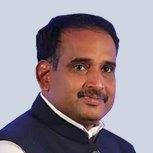The United Nations has designated 5′ June as World Environment Day. It is the largest global platform for environmental public outreach and is celebrated by millions across the world.
The
environment is warming up excessively fast for individuals and nature to adjust. Habitat loss and other
pressures result in threat of extinction to approximately 1 million species around the world.
Along with
coping-up with these issues, we also have pollution from different sources which continuously poisons
our air, land and water and worsen the environmental chaos.
To keep global warming below 1.5°C in
this century, we should reduce the annual greenhouse gas emissions by 50% by the year 2030.
The way-
out from these problems are to change our economies and social orders to make them comprehensive,
fair and more associated with nature.
Key factors for change includes how we assemble and reside in our homes, urban areas and workplaces. Many of these options can be created by entities like national and sub-national governments. financial institutions. businesses. international organizations, and other organizations with the power to rewrite the rules. frame our ambition and open up new horizons. India is taking its eco-friendly responsibility seriously. Plastic-bans, recycling, spreading awareness among the masses, and renewable energy generations are some of the things which has made India stand out on the world map.
Under the vision of Hon. Prime Minister of India, Shri. Narendra Modi, The Government of India has taken several initiatives to conserve nature including Swachh Bharat Abhiyan, Namami Gange Programme, Green Skill Development Programme (GDP), Nagar Van Scheme and Atal Bhujal Yojana (ABHY). Along with implementation of such Government initiatives it is also important to understand that people and society are significant patrons, and allies of the Nature. Everyone needs to work together towards reducing their carbon footprint, conserve nature and contribute towards minimising the rate of Climate change for a sustainable future
Key factors for change includes how we assemble and reside in our homes, urban areas and workplaces. Many of these options can be created by entities like national and sub-national governments. financial institutions. businesses. international organizations, and other organizations with the power to rewrite the rules. frame our ambition and open up new horizons. India is taking its eco-friendly responsibility seriously. Plastic-bans, recycling, spreading awareness among the masses, and renewable energy generations are some of the things which has made India stand out on the world map.
Under the vision of Hon. Prime Minister of India, Shri. Narendra Modi, The Government of India has taken several initiatives to conserve nature including Swachh Bharat Abhiyan, Namami Gange Programme, Green Skill Development Programme (GDP), Nagar Van Scheme and Atal Bhujal Yojana (ABHY). Along with implementation of such Government initiatives it is also important to understand that people and society are significant patrons, and allies of the Nature. Everyone needs to work together towards reducing their carbon footprint, conserve nature and contribute towards minimising the rate of Climate change for a sustainable future
- Mr. M. THENNARASAN
VICE CHAIRMAN & MANAGING DIRECTOR,
GUJARAT INDUSTRIAL DEVELOPMENT CORPORATION (GIDC)



Comments are closed.